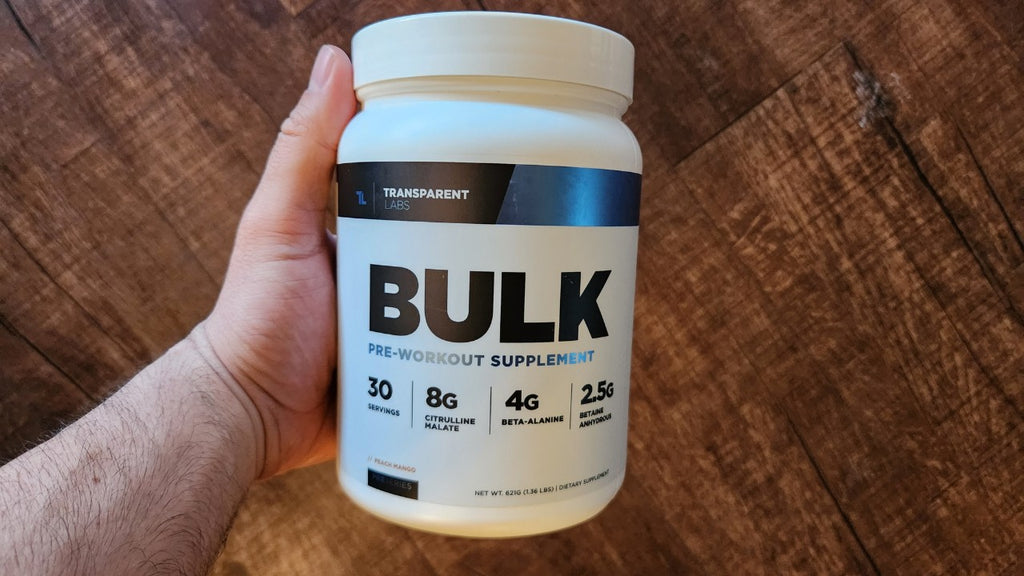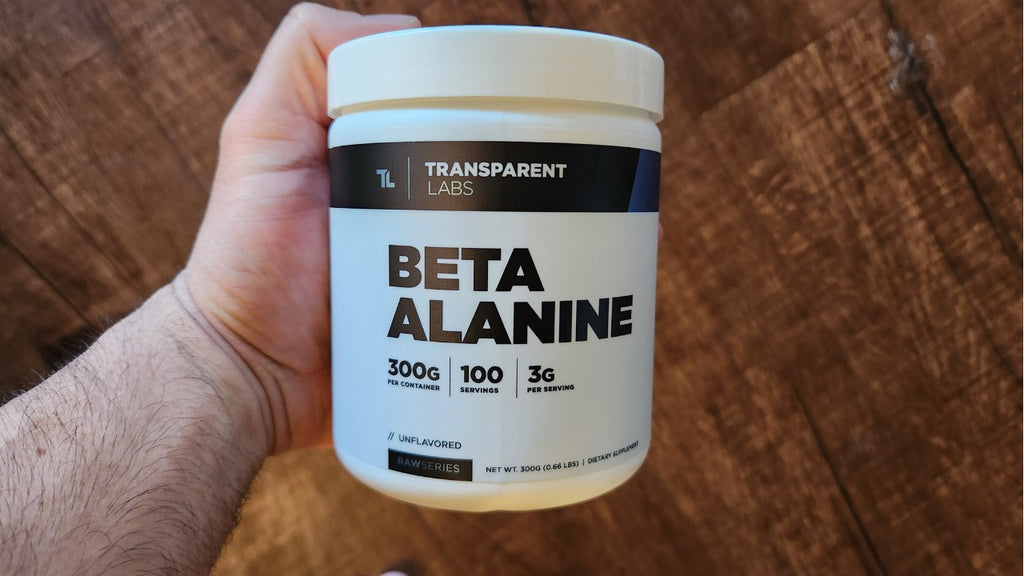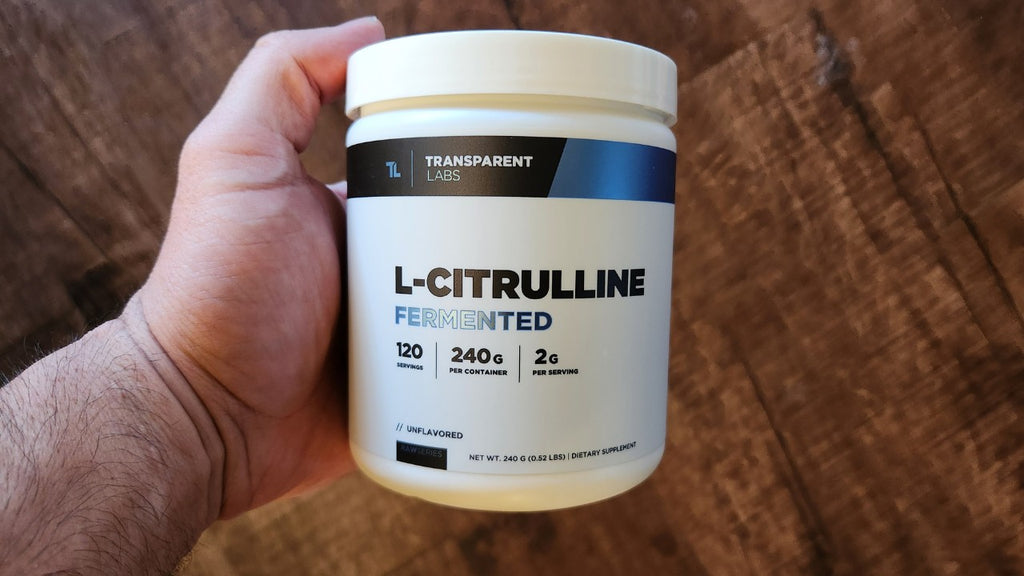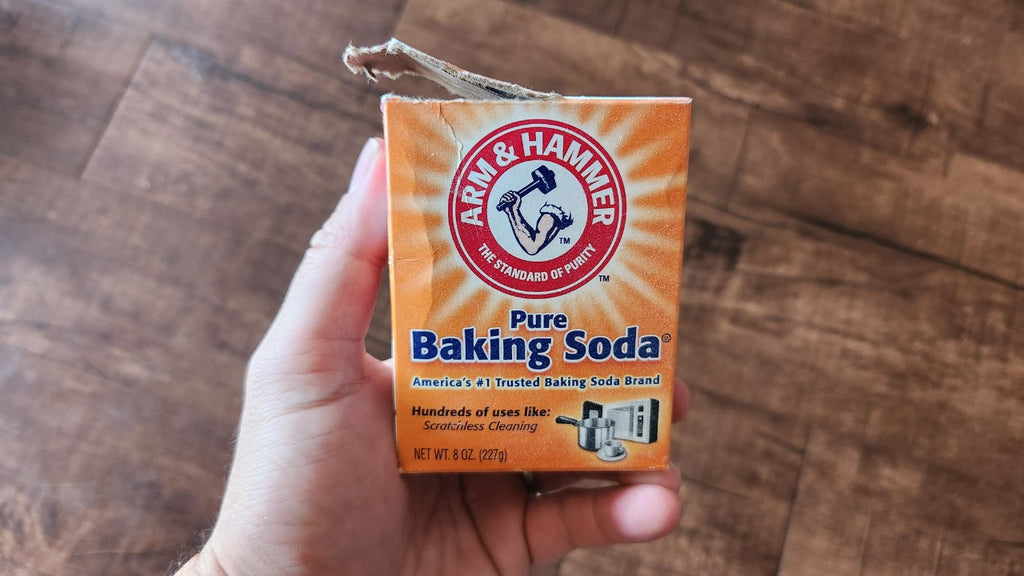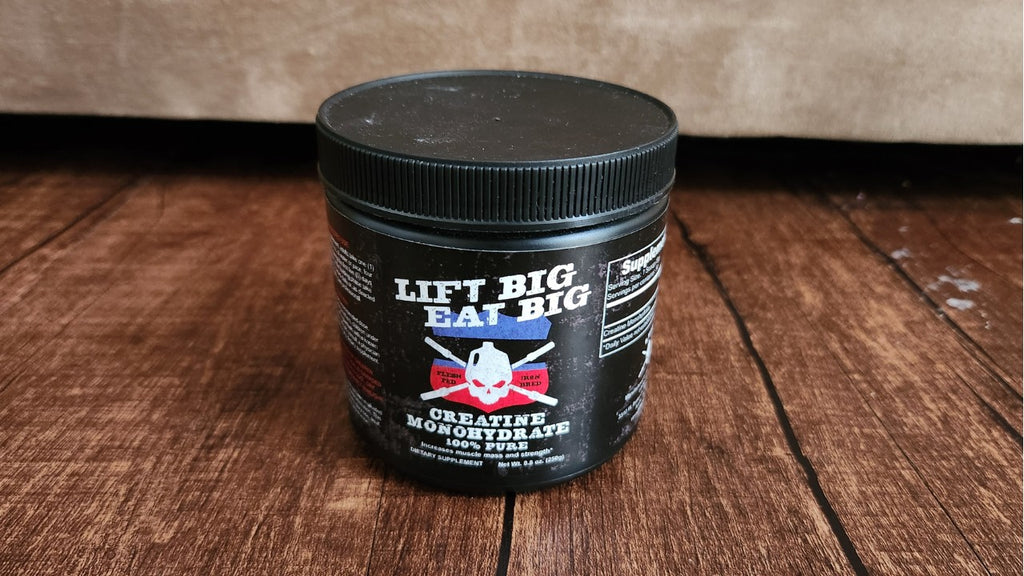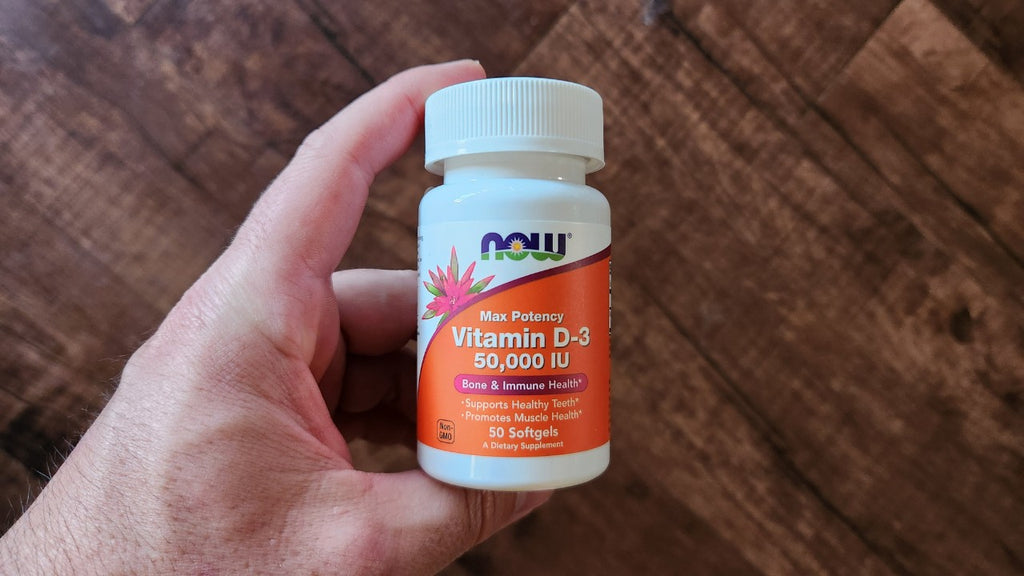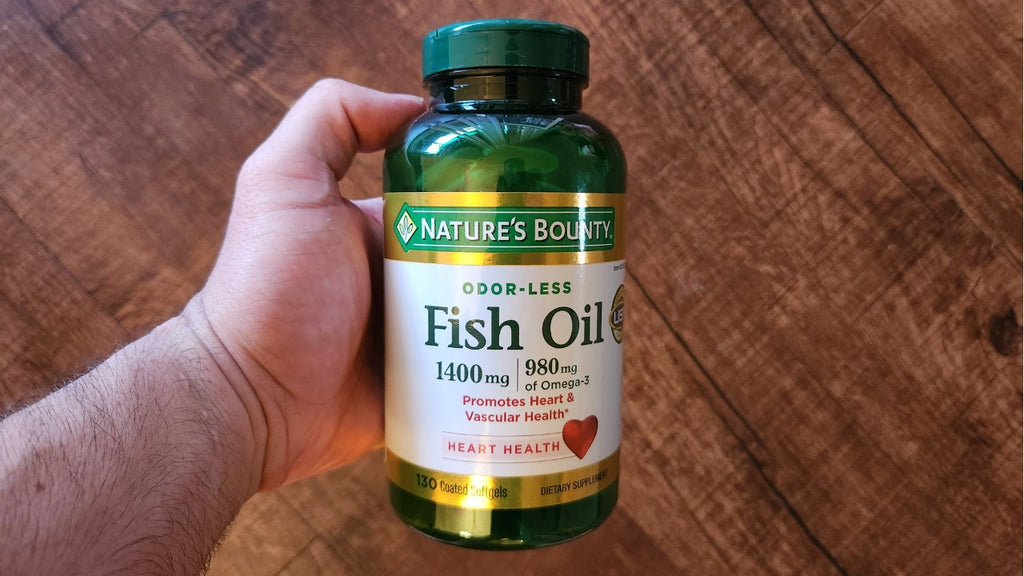
Supplements are an inseparable part of sports and fitness today. While they are not the miracle solutions manufacturers would like you to believe, some products can make your life on the mats easier.
Hundreds of formulations, ingredients, and brands are vying for your money, and many make wild claims about their efficacy. I know perfectly well from experience how tempting it is to believe these promises and envision yourself reaching a world title at black belt thanks to a tub of powder, but we all should know better.
A supplement must noticeably improve a particular aspect of your training to be considered effective for BJJ. We can divide supplements into pre-workout, intra (during training), and post-workout supplements.
I have done the heavy lifting and have thoroughly researched, tested, and picked the best scientifically proven and effective supplements in each category that can elevate your BJJ performance in one way or another.
Best Pre-Training Supplements For BJJ
Pre-training supplements are taken between an hour and 10 minutes before training or competition and should enhance strength, endurance, or focus.
There are many pre-workout supplements mixing in a large amount of ingredients, but they are often not appropriately dosed and can contain banned substances, which can be a problem if you compete.
So, always read the ingredients label to ensure they are dosed adequately.
Caffeine L-Theanine Stack
With an estimated 90% of the world's population consuming caffeine daily, it is safe to say that caffeine is the most consumed drug in the world.
Caffeine is commonly found in traditional beverages like coffee and tea, as well as in energy drinks and pre-workout mixes. Caffeine is also usually the main ingredient in any supplement that claims to increase energy or focus.
I am certain you know firsthand how caffeine makes you feel, but I'll cite some data for better illustration.
Caffeine improves power and sprint performance by 6.5%, increases the number of reps performed in a set by 9.4%, enhances endurance performance by 2.22%, and power output by 2.9% [1][2].
Caffeine, in the context of BJJ, can be excellent for boosting your physical performance and mental state to help you be more focused.
A specific study was done on BJJ athletes, and the test subjects performed better on a number of physical tests and in competition simulation [3].
So, without a doubt, caffeine is a powerful ergogenic supplement. But a lesser-known hack is adding L-theanine to mitigate some of the adverse effects of caffeine. It has a synergistic effect and is one of the original nootropic stacks [4].
Nootropics, also called smart drugs or brain enhancers, aim to improve cognitive performance.
The caffeine L-theanine stack improves physical and cognitive function, such as enhanced reaction time, visual processing speed, working memory, attentiveness, and decreased exhaustion and mental fatigue [5][6].
What Is The Recommended Caffeine + L-Theanine Intake?
Caffeine alone has a suggested intake of 3-6 mg per kilogram of body weight. This is a significant amount; if you are not used to caffeine, start with 100 mg. However, when coupled with L-theanine, dosages can be significantly reduced.
The ideal ratio of L-theanine to caffeine is 2:1, with a regular dose of 200 mg L-theanine and 100 mg caffeine taken 30-60 minutes before exercise.
===>Check Latest Pre-Workout Deals<===
Beta-Alanine
Beta-alanine is known to cause a tingling or itchy sensation on the skin following intake.
Many people associate this feeling with their pre-workout mixes "working." But that is not the case. Paresthesia is a harmless side effect of ingesting beta-alanine [7].
Beta-alanine works by buffering hydrogen ions in the muscle, increasing the time before exhaustion.
Let me explain this in BJJ terms. Lactate accumulates within the muscles during high-intensity activities, such as BJJ.
This is the "burn" sensation followed by exhaustion. For example, the leg fatigue you experience when you try to hold closed guard for too long.
However, the "burn" is generated by increased hydrogen ions (H+), not a rise in blood lactate.
As hydrogen ions collect, they make the muscle environment acidic, reducing the pH.
This pH drop has a detrimental effect on the muscle's contractile capacity, resulting in fatigue.
We can delay exhaustion by ingesting beta-alanine, which removes hydrogen ions from the muscle and keeps it at a neutral pH level for longer. It accomplishes this by raising carnosine levels, which buffer or eliminate H+ ions.
How do we know that this works? Studies have demonstrated that beta-alanine increases high-intensity exercise duration in the 1-4 minute range, allowing you to maintain a greater intensity for longer [8,9].
What Is The Recommended Beta-Alanine Intake?
The recommended dose is 30 milligrams per kilogram body weight 60 minutes before exercising.
So, if you weigh 70 kilograms, you'll need 2.1 grams of beta-alanine. Beta-alanine is a daily supplement that will help you improve your carnosine levels.
If you cannot tolerate the tingling feeling at greater levels, divide your dose throughout the day. For example, 0.7 g, three times a day.
===>Check Latest Beta-Alanine Deals<===
L-Citrulline
L-citrulline provides similar benefits to beta-alanine for exercise duration but through a different method. L-citrulline is a nitric oxide booster, which means it dilates blood vessels, allowing more blood to flow easily to working muscles.
More blood means more oxygen is given to the muscles, which improves endurance performance [10].
L-citrulline is converted to L-arginine in the kidneys. As a result, L-arginine concentration increases, converting to nitric oxide and increasing endurance.
Interestingly, nitric oxide may minimize the need for oxygen and ATP during exercise while increasing the efficiency of the mitochondria's energy production [10].
L-citrulline has been demonstrated to raise the number of repetitions to failure in both lower and upper body exercise, improve maximal grip strength, reduce muscular soreness after training, extend the time to exhaustion during moderate-intensity exercise, and improve feelings of muscular fatigue after exercise [10,11,12].
It's easy to see how all of this benefits BJJ.
What Is The Recommended L-Citrulline Intake?
You should consume L-citrulline every day. Anywhere from 3 to 8 grams daily, about 60 minutes before a workout. The research reveals that 6-8 g doses are the most effective.
===>Check Latest L-Citrulline Deals<===
Sodium Bicarbonate
Yes, I am talking about your regular baking soda at home. It turns out this common household ingredient is a powerful cardio enhancer.
It might seem strange initially, but I am all about giving you scientifically backed supplements, and sodium bicarbonate has more than solid backing.
Here is how it works and what results studies show.
Sodium bicarbonate slightly raises the pH levels within the muscle, lengthening the duration between acidity and exhaustion. It has been demonstrated to boost power production and time to fatigue [13].
It has been researched whithin a few martial arts, and the results are not always what you might expect.
For example, BJJ practitioners reported no improvement in isometric leg strength to fatigue after consuming sodium bicarbonate [14]. But this doesn't mean baking soda doesn't work.
It is crucial to highlight that endurance in this study was tested using a test that emphasized force production, which explains why no improvement was likely seen. Fortunately, we have research on Judo and elite wrestling.
After consuming sodium bicarbonate, a judoka could do more throws during the specific Judo fitness test and create a larger upper body average and peak power relative to body weight [15,16]. But that is not all!
The Elite wrestlers test showed the same results, and the athletes could perform more throws during a dummy throw test [17]. However, this was limited to male athletes.
What Is The Recommended Sodium Bicarbonate Intake?
The suggested dosage is 0.2-0.4 g per kilogram of body weight, 60-120 minutes before training [18].
Using our 70 kg BJJ athlete example, 14-28 g sodium bicarbonate. That can be a lot to digest. Some people may have gastrointestinal discomfort from consuming this much at once.
So, another method is to divide the complete amount into three doses throughout the day [19]. In this way, you can still reap the benefits without stomach issues.
Sodium Bicarbonate is not the easiest supplement to take, but it’s dirt cheap and super effective, so it may be worth the hassle.
===>Check Latest Sodium Bicarbonate Deals<===
Best Intra Workout Supplements For BJJ
BJJ training sessions are usually not long enough to warrant much supplementation, but if you are training hard for more than an hour, you may need extra energy aside from water to keep you firing on all cylinders.
Sports drinks are one way to go about it, but they often contain unwanted substances and are not cheap, so I am recommending a type of carbohydrate you can use for fuel.
Maltodextrin
Maltodextrin is a simple type of carbohydrate. Essentially, it is sugar without the sweetness. It blends nicely with whey protein, making it an excellent post-workout drink, but you should avoid drinking it while training.
Instead, use pure maltodextrin with some flavoring. It could be a fizzy pill or flavored droplets. Depending on your carbohydrate requirements, you can also add maltodextrin to your sports drink to supplement your carbohydrate intake.
Sports drinks also contain electrolytes like sodium, potassium, and chloride, which are crucial if you sweat a lot.
So, if you train in a hot climate and your gym does not believe in the power of AC, getting something with electrolytes on top of carbohydrates is a sound idea.
But let's get back to maltodextrin and why use it as the carbohydrate source.
Glucose is the primary fuel source for replenishing energy in your working muscles.
It is also the fastest to convert into energy. Fats and proteins, on the other hand, must go through a series of transformations before becoming glucose.
We can theoretically prolong tiredness for 30-60 minutes by increasing glucose availability to the muscles.
What Is The Recommended Maltodextrin Intake?
It appears 40-75 grams of carbs per hour is sufficient to improve performance. If you know you have a hard two-hour BJJ session, consuming carbohydrates after 30-45 minutes will keep you fueled for the rest of the session.
===>Check Latest Carb Supplement Deals<===
Best Post-Workout Supplements For BJJ
Post-workout supplements usually help you with recovery, which is often as important as training itself.
Some of these are not necessarily taken right after training but require long-term use, and ingestion timing is not important, unlike pre- and intra-workout supplements where timing is key.
The first three supplements on this list are the most important for BJJ practitioners and the only ones I consider necessary.
Creatine Monohydrate
Creatine is one of the most well-studied supplements and has been proven to be extremely effective for athletes to increase their high-intensity exercise capacity and lean muscle mass.
Creatine is a staple for countless strength and bodybuilding athletes and everyday lifters, but it should also be a part of every BJJ practitioner's supplementation routine, in my opinion.
To summarize how creatine works, when you take it as a supplement you have enough creatine in your body to saturate the muscles.
What exactly does that mean, and what does it do?
Our muscles contract using adenosine triphosphate (ATP) as fuel. Triphosphate refers to three phosphate molecules.
These phosphate molecules bond to creatine, forming phosphocreatine (PCr). As a muscle uses ATP for energy, it loses a phosphate molecule, resulting in adenosine diphosphate, or two phosphates.
To convert back to ATP, it must replenish this phosphate. As a result, the stored PCr is immediately consumed, renewing ATP for the muscle to use. This means you have more energy available for the alactic energy system.
Studies show this results in an 8% increase in strength, 14% more reps at a given load, and an increase in anaerobic power [20,21]. Furthermore, as we discussed in the pre-training section, an accumulation of H+ ions causes fatigue.
PCr absorbs H+ ions, which delays the time to exhaustion during very high-intensity exercise, allowing for more reps at a given load [22]. Creatine also improves the ability to restore glycogen, giving you extra fuel for creating ATP [23].
BJJ involves a lot of explosive bursts, followed by lower intensity periods, and improving anaerobic power while having more fuel for explosive actions through creatine is a big benefit to enjoy.
Creatine will also significantly aid your efforts in the weight room and help you build more muscle, which is why I believe creatine to be one of the few essential supplements for BJJ.
What Is The Recommended Creatine Monohydrate Intake?
The recommended creatine dosage for optimal results is 5 g per day. It's that simple. It does not matter when you take it.
Simply make it a routine and do it daily. The most common way of intake is in your post-workout shake, which is why I have placed creatine in the post-workout category.
===>Check Latest Lift Big Eat Big Creatine Deals<===
Whey Protein
Whey protein is a high-quality protein obtained from milk during the cheesemaking process.
Whey protein is highly digested and contains all nine essential amino acids, which the body cannot create on its own, and is super popular among athletes from all fields.
Whey is your best friend if you're having trouble meeting your daily protein requirements or looking for a low-cost, high-quality protein source.
Supplementation with whey protein for 6 to 12 weeks during strength training was more effective than a pure carbohydrate supplement or alternative protein sources in terms of muscle building and strength development [24].
It contains some of the most necessary amino acids (EAA), which stimulate muscle protein synthesis (the creation of new muscle) to the maximum extent, which is why whey is the perfect post-workout supplement.
However, some people cannot digest whey protein well due to lactose intolerance, while others may avoid dairy products.
In the first case, choosing a whey isolate means that the protein powder contains little to no lactose, making it easy to digest. For the second situation, beef protein powders are excellent substitutes.
Even though they do not cause an early surge in the protein synthesis response, they produce equivalent gains in muscle development and performance to whey protein [25].
What Is The Recommended Whey Protein Intake?
This is largely dependent on your body weight and protein requirements. One scoop of your favorite protein powder will suffice, as 20-25 g of whey protein has been proven to stimulate muscle growth.
The International Society of Sports Nutrition advises a minimum daily protein consumption of 1.6 g/kg, with a maximum of 2.2 g/kg/day or 0.72 g/lb to 1.0 g/lb of body weight [26].
This can be hard to obtain from food alone, especially for heavier people. Whey protein makes reaching the daily protein target easier and cheaper.
===>Check Latest Whey Protein Deals<===
Vitamin D
Because BJJ is an indoor activity, you are likely deficient in this vital vitamin the sun provides. For example, all of the indoor sports participants in this study were moderately or severely deficient in vitamin D [30].
Vitamin D supplementation is crucial because it promotes bone mineral density, stimulates muscular growth of Type II muscle fibers, enhances strength and performance, can accelerate rehabilitation, and boosts the immune system [31].
There are even studies specifically for combat sports, and both of them show supplementation with 50,000 IUs per week increases both aerobic and anaerobic endurance [32,33].
Being out in sunlight is always preferable, but not possible for most people, at least not year-round. The low price of vitamin D and its effects on endurance, when taken in high doses, make it a must-use supplement for BJJ practitioners.
What Is The Recommended Vitamin D Intake?
As I said, the optimal dosage is 50,000 IUs per week. The studies show there aren't additional benefits to gain if you go above this dose.
Most vitamin D supplements have 500-1000 IUs per tablet, so you will need to buy 50,000 IU like the one offered by Now Foods and take it once a week or use 10,000 IU doses 5 times per week.
===>Check Latest Vitamin D Deals<===
Mass Gainer
A mass gainer isn't strictly necessary. However, it can be a convenient meal replacement if you are short on time after training.
In a situation where you are taking a midday class and hurrying back to work, gulping a shake of mass gainer makes perfect sense.
A mass gainer is just a meal in powder form containing a lot of carbohydrates, protein, and a little fat. But how can you determine which one is best for you? Many are on the market, and many are full of garbage.
One of the greatest I've found is Crazy Nutrition's Mass Gainer. It's one of the few that employs natural products as a carbohydrate source, such as sweet potato and oats, so you'll obtain more micronutrients and feel better in your stomach.
Furthermore, it contains digestive enzymes, so you will not feel bloated after drinking it.
What Is The Recommended Mass Gainer Intake?
One dose of a mass gainer is usually around 450 and 700 calories, making it a solid meal replacement. In the case of Crazy Nutrition, you are getting 488 calories and 40 grams of protein per dose.
===>Check Latest Mass Gainer Deals<===
Fish Oil
Fish oil is not a miraculous supplement, as many people believe. However, it is a fantastic overall health supplement to use. Taking fish oil can lower triglyceride levels, which may minimize your chance of a heart attack [27].
Furthermore, fish oil intake can reduce resting heart rate in persons who are out of shape [29]. Numerous scientific studies have shown that fish oil can improve heart health, brain function, and inflammation.
While this is all great, we are interested in the benefits for athletes. Fish oil supplementation has been demonstrated to minimize perceived muscle pain and increase acute power output after recovery [28].
But you shouldn't buy just any fish oil supplement as most are low-quality. You can determine if a product is legit by looking at how much EPA and DHA are in a fish oil capsule. The most common ratio for a 1000 mg capsule is 180 mg EPA and 120 mg DHA.
This means the remaining 700 milligrams are filler. Look for double or triple-dose formulations that contain at least 50% EPA and DHA.
What Is The Recommended Fish Oil Intake?
The recommendation is at least 1 g of mixed EPA and DHA per day. I prefer to go higher, around 2 g combined EPA and DHA.
===>Check Latest Fish Oil Deals<===
Glucosamine Sulfate
Joint supplements are frequently recommended for people suffering from osteoarthritis to alleviate symptoms. While glucosamine can be used for this, it may also have a preventive effect.
For example, soccer players supplemented with glucosamine sulfate had a slower rate of collagen degradation, indicating that it may help protect your joints [34].
BJJ puts a lot of strain on your joints, and if you have problems with this area, glucosamine might be a good supplement to take.
What Is The Recommended Glucosamine Intake?
3000 mg is the suggested high dose to slow down joint deterioration.
===>Check Latest Glucosamine Deals<===
BJJ Supplements To Avoid
There are a few popular supplements in the BJJ community that I believe should be avoided because their effects are not worth spending money on.
BCAA
Many people take BCAA's as a separate supplement, but this is a waste of money for most of them. Let me explain why.
BCAAs are essential amino acids crucial for muscle protein synthesis, muscular repair, and avoiding muscle breakdown during exercise.
But the good news is that if you eat enough high-quality protein like meat, dairy, and poultry, and even more so if you drink whey protein (which contains BCAAs), the extra supplementation has no additional effect whatsoever [35].
L-Glutamine
Glutamine is an amino acid naturally abundant in whey protein, beef, and eggs. If you consume these products often, you probably already exceed the necessary amount.
Glutamine has not been proven to enhance muscle growth, although it may positively impact gut health, especially in vegans.
How Important Are Supplements For BJJ Performance
Supplements are an excellent way to enhance your BJJ and athletic performance, but they are not a magic pill and can never substitute a healthy lifestyle and diet. They are just a piece of the puzzle.
A balanced diet supplying your body with all the necessary micro and macronutrients is paramount. Supplements then help further build upon a solid diet or patch a hole here or there, but will not be of much help if you eat garbage all the time.
The best results are a fact when you combine supplements with a solid diet, a good training regime, and proper sleep and recovery.
How To Choose The Best Quality Supplements
Sadly, too many products on the market are underdosed or contain fillers or unwanted substances.
Always buy from reputable brands, ideally with visible third-party testing. This is especially true if you are a competitor subject to drug tests. We know these aren't really a thing in BJJ, but it's probably a matter of time before banned substance tests become the norm.
Even if you are not worried about tests, it's best to know what you put in your body, so always research before buying a supplement. There are plenty of professional and user reviews online. If you can't find any for a product, stay away from it.
What Are The Best Supplements For BJJ
If I have to narrow the list to only three products, it will be whey protein, creatine, and vitamin D3. All three have thorough studies and have been proven effective beyond any doubt. They are cheap and harmless and provide numerous benefits for BJJ practitioners and athletes in general.
More supplements can benefit you, and most of the ones I believe are worth it are on this list. Nevertheless, all the others except whey, creatine, and vitamin D3 are more situational and not as universally effective in enhancing performance.
Summary
The best supplements for BJJ either directly enhance your performance, like caffeine, creatine, and sodium bicarbonate, or fill gaps within the diet, like whey protein. Always remember that supplements are just that- a supplement to your overall diet.
Always buy products from reputable brands to ensure you are getting the full scope of possible benefits and not ingesting useless or outright harmful substances.
References
- Astorino, T. A., & Roberson, D. W. (2010). Efficacy of acute caffeine ingestion for short-term high-intensity exercise performance: a systematic review. The Journal of Strength & Conditioning Research, 24(1), 257-265.
- Southward, K., Rutherfurd-Markwick, K. J., & Ali, A. (2018). The effect of acute caffeine ingestion on endurance performance: a systematic review and meta-analysis. Sports Medicine, 48(8), 1913-1928.
- Diaz-Lara FJ, Del Coso J, García JM, Portillo LJ, Areces F, Abián-Vicén J. Caffeine improves muscular performance in elite Brazilian Jiu-jitsu athletes. Eur J Sport Sci. 2016 Nov;16(8):1079-86. doi: 10.1080/17461391.2016.1143036. Epub 2016 Feb 10. PMID: 26863885.
- Mason, R. (2001). 200 mg of Zen: L-theanine boosts alpha waves, promotes alert relaxation. Alternative & Complementary Therapies, 7(2), 91-95.
- Haskell, C. F., Kennedy, D. O., Milne, A. L., Wesnes, K. A., & Scholey, A. B. (2008). The effects of L-theanine, caffeine and their combination on cognition and mood. Biological psychology, 77(2), 113-122.
- Owen, G. N., Parnell, H., De Bruin, E. A., & Rycroft, J. A. (2008). The combined effects of L-theanine and caffeine on cognitive performance and mood. Nutritional neuroscience, 11(4), 193-198.
- Huerta Ojeda, Á., Tapia Cerda, C., Poblete Salvatierra, M. F., Barahona-Fuentes, G., & Jorquera Aguilera, C. (2020). Effects of beta-alanine supplementation on physical performance in aerobic–anaerobic transition zones: A systematic review and meta-analysis. Nutrients, 12(9), 2490.
- Hobson, R. M., Saunders, B., Ball, G., Harris, R. C., & Sale, C. (2012). Effects of β-alanine supplementation on exercise performance: a meta-analysis. Amino acids, 43(1), 25-37.
- Saunders, B., Elliott-Sale, K., Artioli, G. G., Swinton, P. A., Dolan, E., Roschel, H., ... & Gualano, B. (2017). β-alanine supplementation to improve exercise capacity and performance: a systematic review and meta-analysis. British Journal of Sports Medicine, 51(8), 658-669.
- Gonzalez, A. M., & Trexler, E. T. (2020). Effects of citrulline supplementation on exercise performance in humans: A review of the current literature. The Journal of Strength & Conditioning Research, 34(5), 1480-1495.
- Bailey, S. J., Blackwell, J. R., Lord, T., Vanhatalo, A., Winyard, P. G., & Jones, A. M. (2015). l-Citrulline supplementation improves O2 uptake kinetics and high-intensity exercise performance in humans. Journal of Applied Physiology.
- Suzuki, T., Morita, M., Kobayashi, Y., & Kamimura, A. (2016). Oral L-citrulline supplementation enhances cycling time trial performance in healthy trained men: Double-blind randomized placebo-controlled 2-way crossover study. Journal of the International Society of Sports Nutrition, 13(1), 1-8.
- Lavender, G., & Bird, S. R. (1989). Effect of sodium bicarbonate ingestion upon repeated sprints. British journal of sports medicine, 23(1), 41-45.
- Ragone, L., Vieira, J. G., Laterza, M. C., Leitão, L., da Silva Novaes, J., Vianna, J. M., & Dias, M. R. (2020). Acute Effect of Sodium Bicarbonate Supplementation on Symptoms of Gastrointestinal Discomfort, Acid‐Base Balance, and Performance of Jiu‐Jitsu Athletes. Journal of Human Kinetics, 75(1), 85-93.
- Artioli, G. G., Gualano, B., Coelho, D. F., Benatti, F. B., Gailey, A. W., & Lancha, A. H. (2007). Does sodium-bicarbonate ingestion improve simulated judo performance?. International journal of sport nutrition and exercise metabolism, 17(2), 206-217.
- Felippe, L. C., Lopes-Silva, J. P., Bertuzzi, R., McGinley, C., & Lima-Silva, A. E. (2016). Separate and combined effects of caffeine and sodium-bicarbonate intake on judo performance. International journal of sports physiology and performance, 11(2), 221-226.
- Durkalec-Michalski, K., Zawieja, E. E., Podgórski, T., Zawieja, B. E., Michałowska, P., Łoniewski, I., & Jeszka, J. (2018). The effect of a new sodium bicarbonate loading regimen on anaerobic capacity and wrestling performance. Nutrients, 10(6), 697.
- Peart, D. J., Siegler, J. C., & Vince, R. V. (2012). Practical recommendations for coaches and athletes: a meta-analysis of sodium bicarbonate use for athletic performance. The Journal of Strength & Conditioning Research, 26(7), 1975-1983.
- Rezaei, S., Akbari, K., Gahreman, D. E., Sarshin, A., Tabben, M., Kaviani, M., … & Naderi, A. (2019). Caffeine and sodium bicarbonate supplementation alone or together improve karate performance. Journal of the International Society of Sports Nutrition, 16(1), 1-8.
- Rawson, E. S., & Volek, J. S. (2003). Effects of creatine supplementation and resistance training on muscle strength and weightlifting performance. The Journal of Strength & Conditioning Research, 17(4), 822-831.
- Mielgo-Ayuso, J., Calleja-Gonzalez, J., Marqués-Jiménez, D., Caballero-García, A., Córdova, A., & Fernández-Lázaro, D. (2019). Effects of creatine supplementation on athletic performance in soccer players: a systematic review and meta-analysis. Nutrients, 11(4), 757.
- Terjung, R. L., Clarkson, P., Eichner, E. R., Greenhaff, P. L., Hespel, P. J., Israel, R. G., … & Williams, M. H. (2000). American College of Sports Medicine roundtable. The physiological and health effects of oral creatine supplementation. Medicine and science in sports and exercise, 32(3), 706-717.
- LOON, L. J. V., Murphy, R., Oosterlaar, A. M., Cameron-Smith, D., Hargreaves, M., Wagenmakers, A. J., & Snow, R. (2004). Creatine supplementation increases glycogen storage but not GLUT-4 expression in human skeletal muscle. Clinical science, 106(1), 99-106.
- Naclerio, F., & Larumbe-Zabala, E. (2016). Effects of whey protein alone or as part of a multi-ingredient formulation on strength, fat-free mass, or lean body mass in resistance-trained individuals: a meta-analysis. Sports Medicine, 46(1), 125-137.
- Sharp, M. H., Lowery, R. P., Shields, K. A., Lane, J. R., Gray, J. L., Partl, J. M., ... & Wilson, J. M. (2018). The effects of beef, chicken, or whey protein after workout on body composition and muscle performance. The Journal of Strength & Conditioning Research, 32(8), 2233-2242.
- Schoenfeld, B.J., Aragon, A.A. How much protein can the body use in a single meal for muscle-building? Implications for daily protein distribution. J Int Soc Sports Nutr 15, 10 (2018). https://doi.org/10.1186/s12970-018-0215-1
- Wei, M. Y., & Jacobson, T. A. (2011). Effects of eicosapentaenoic acid versus docosahexaenoic acid on serum lipids: a systematic review and meta-analysis. Current atherosclerosis reports, 13(6), 474-483.
- VanDusseldorp TA, Escobar KA, Johnson KE, Stratton MT, Moriarty T, Kerksick CM, Mangine GT, Holmes AJ, Lee M, Endito MR, Mermier CM. Impact of Varying Dosages of Fish Oil on Recovery and Soreness Following Eccentric Exercise. Nutrients. 2020 Jul 27;12(8):2246. doi: 10.3390/nu12082246. PMID: 32727162; PMCID: PMC7468920.
- Mozaffarian, D., Geelen, A., Brouwer, I. A., Geleijnse, J. M., Zock, P. L., & Katan, M. B. (2005). Effect of fish oil on heart rate in humans: a meta-analysis of randomized controlled trials. Circulation, 112(13), 1945-1952.
- Valtueña, J., Dominguez, D., Til, L., González-Gross, M., & Drobnic, F. (2014). High prevalence of vitamin D insufficiency among elite Spanish athletes; the importance of outdoor training adaptation. Nutricion hospitalaria, 30(1), 124-131.
- de la Puente Yagüe, M., Collado Yurrita, L., & Cuadrado Cenzual, M. A. (2020). Role of vitamin D in athletes and their performance: Current concepts and new trends. Nutrients, 12(2), 579.
- Andrew Marley, Marie Clare Grant & John Babraj (2021) Weekly Vitamin D3 supplementation improves aerobic performance in combat sport athletes, European Journal of Sport Science, 21:3, 379-387, DOI: 10.1080/17461391.2020.1744736
- Marley, A. & Grant, M.C. & Babraj, John. (2022). Vitamin D3 supplementation combined with sprint interval training improves aerobic and anaerobic exercise performance over sprint interval training alone in recreational combat sport athletes. Science & Sports. 37. 10.1016/j.scispo.2021.07.004.
- Yoshimura, M., Sakamoto, K., Yamamoto, T., Ishida, K., Yamaguchi, H., & Nagaoka, I. (2009). Evaluation of the effect of glucosamine administration on biomarkers for cartilage and bone metabolism in soccer players. International journal of molecular medicine, 24(4), 487-494.
- Plotkin, D. L., Delcastillo, K., Van Every, D. W., Tipton, K. D., Aragon, A. A., & Schoenfeld, B. J. (2021). Isolated leucine and branched-chain amino acid supplementation for enhancing muscular strength and hypertrophy: A narrative review. International journal of sport nutrition and exercise metabolism, 31(3), 292-301.
